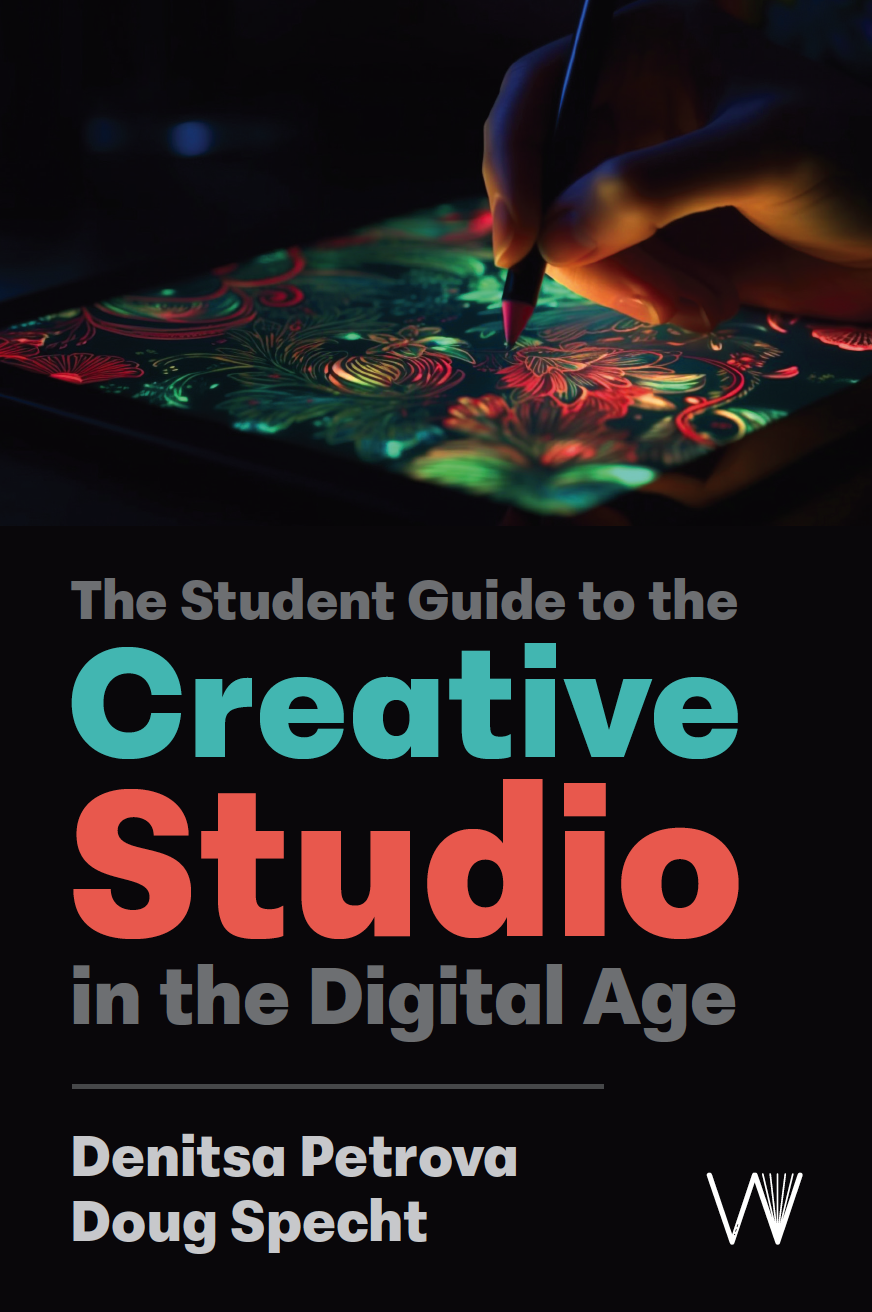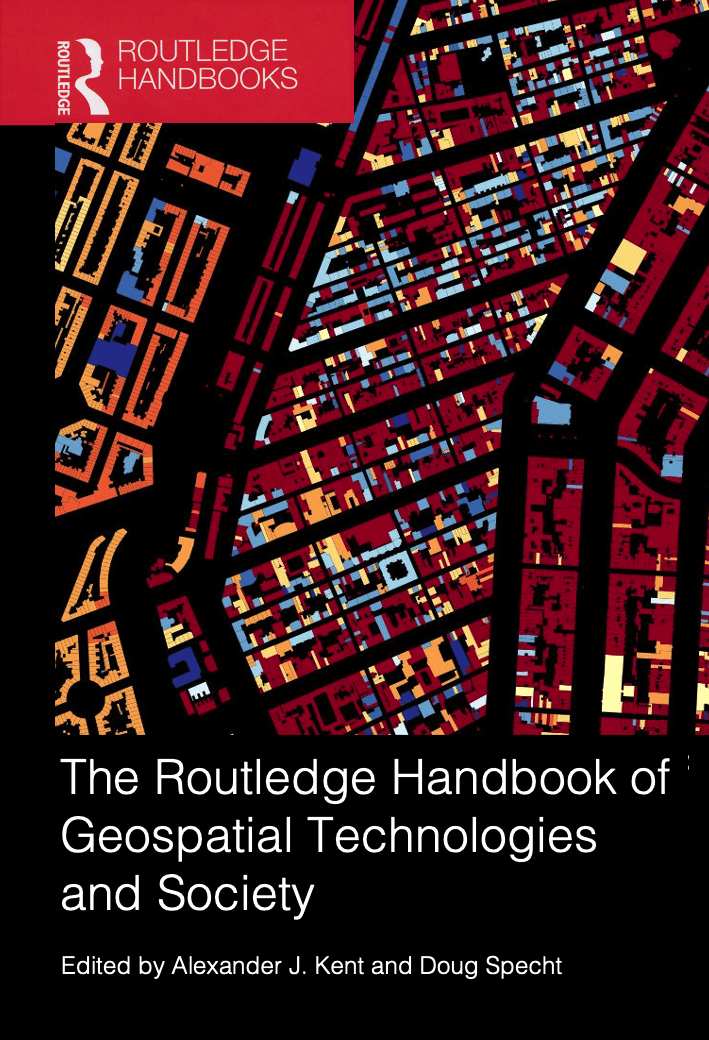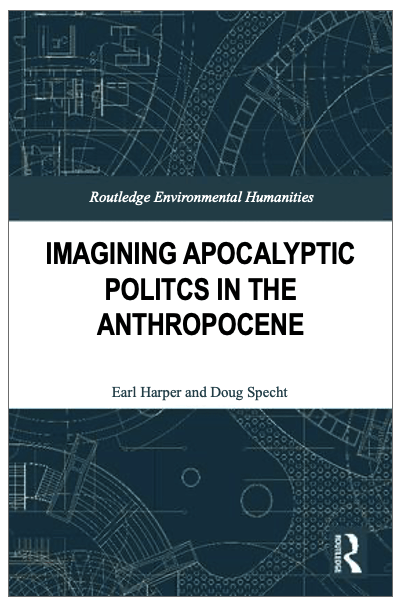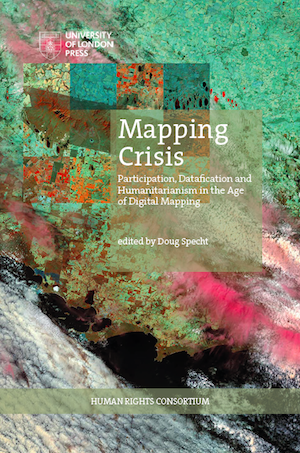2025

The Student Guide to the Creative Studio in the Digital Age
Petrova, Denitsa; Specht, DougBookForthcomingOpen Access
University of Westminster Press, Forthcoming.
@book{nokey,
title = {The Student Guide to the Creative Studio in the Digital Age},
author = {Denitsa Petrova and Doug Specht},
url = {https://uwestminsterpress.co.uk/},
year = {2025},
date = {2025-10-11},
urldate = {2024-09-01},
publisher = {University of Westminster Press},
keywords = {},
pubstate = {forthcoming},
tppubtype = {book}
}
2023

The Routledge Handbook of Geospatial Technology and Society
Kent, Alexander J; Specht, Doug (Ed.)Edited collection
Routledge, 2023, ISBN: 9780367428877.
@collection{nokey,
title = {The Routledge Handbook of Geospatial Technology and Society},
editor = {Alexander J Kent and Doug Specht},
url = {https://www.routledge.com/The-Routledge-Handbook-of-Geospatial-Technologies-and-Society/Kent-Specht/p/book/9780367428877},
isbn = {9780367428877},
year = {2023},
date = {2023-08-17},
urldate = {2023-08-17},
publisher = {Routledge},
abstract = {The Routledge Handbook of Geospatial Technologies and Society provides a relevant and comprehensive reference point for research and practice in this dynamic field. It offers detailed explanations of geospatial technologies and provides critical reviews and appraisals of their application in society within international and multi-disciplinary contexts as agents of change.
The ability of geospatial data to transform knowledge in contemporary and future societies forms an important theme running throughout the entire volume. Contributors reflect on the changing role of geospatial technologies in society and highlight new applications that represent transformative directions in society and point towards new horizons. Furthermore, they encourage dialogue across disciplines to bring new theoretical perspectives on geospatial technologies, from neurology to heritage studies.
The international contributions from leading scholars and influential practitioners that constitute the Handbook provide a wealth of critical examples of these technologies as agents of change in societies around the globe. The book will appeal to advanced undergraduates and practitioners interested or engaged in their application worldwide.},
keywords = {},
pubstate = {published},
tppubtype = {collection}
}
The ability of geospatial data to transform knowledge in contemporary and future societies forms an important theme running throughout the entire volume. Contributors reflect on the changing role of geospatial technologies in society and highlight new applications that represent transformative directions in society and point towards new horizons. Furthermore, they encourage dialogue across disciplines to bring new theoretical perspectives on geospatial technologies, from neurology to heritage studies.
The international contributions from leading scholars and influential practitioners that constitute the Handbook provide a wealth of critical examples of these technologies as agents of change in societies around the globe. The book will appeal to advanced undergraduates and practitioners interested or engaged in their application worldwide.
2021

Imagining Apocalyptic Politics in the Anthropocene
Harper, Earl T.; Specht, Doug (Ed.)Edited collection
Routledge, 2021, ISBN: 9780367653095.
@collection{nokey,
title = {Imagining Apocalyptic Politics in the Anthropocene},
editor = {Earl T. Harper and Doug Specht},
url = {https://www.routledge.com/Imagining-Apocalyptic-Politics-in-the-Anthropocene/Harper-Specht/p/book/9780367653095
https://www.amazon.co.uk/Imagining-Apocalyptic-Anthropocene-Environmental-Humanities/dp/0367653095},
isbn = {9780367653095},
year = {2021},
date = {2021-09-30},
urldate = {2021-09-30},
publisher = {Routledge},
series = {Environmental Humanities},
abstract = {Bringing together scholars from English literature, geography, politics, the arts, environmental humanities and sociology, Imagining Apocalyptic Politics in the Anthropocene contributes to the emerging debate between bodies of thought first incepted by scholars such as Mouffe, Arendt, Kaplan, Žižek, Swyngedouw and Malm about how apocalyptic events, narratives and imaginaries interact with societal and individual agency historically and in the current political moment. Exploring their own empirical and philosophical contexts, the authors examine the forms of political acting found in apocalyptic imaginaries and reflect on what this means for contemporary society. By framing their arguments around either pre-apocalyptic, peri-apocalyptic or post-apocalyptic narratives and events, a timeline emerges throughout the volume which shows the different opportunities for political agency the anthropocenic subject can enact at the various stages of apocalyptic moments.
Featuring a number of creative interventions exclusively produced for the work from artists and fiction writers who engage with the themes of apocalypse, decline, catastrophe and disaster, this innovative book will be of great interest to students and scholars of the politics of climate change, the environmental humanities, literary criticism and eco-criticism.},
keywords = {},
pubstate = {published},
tppubtype = {collection}
}
Featuring a number of creative interventions exclusively produced for the work from artists and fiction writers who engage with the themes of apocalypse, decline, catastrophe and disaster, this innovative book will be of great interest to students and scholars of the politics of climate change, the environmental humanities, literary criticism and eco-criticism.
2020

Mapping Crisis: Participation, Datafication, and Humanitarianism in the Age of Digital Mapping
Specht, Doug (Ed.)Edited collectionOpen Access
University of London Press, 2020, ISBN: 978-1-912250-33-2.
@collection{nokey,
title = {Mapping Crisis: Participation, Datafication, and Humanitarianism in the Age of Digital Mapping},
editor = {Doug Specht},
url = {https://uolpress.co.uk/book/mapping-crisis/
https://www.amazon.co.uk/Mapping-Crisis-Participation-Datafication-Humanitarianism/dp/1912250330/},
isbn = {978-1-912250-33-2},
year = {2020},
date = {2020-09-14},
urldate = {2020-09-14},
booktitle = {Book title},
publisher = {University of London Press},
abstract = {This book brings together critical perspectives on the role that mapping people, knowledges and data now plays in humanitarian work, both in cartographic terms and through data visualisations. Since the rise of Google Earth in 2005, there has been an explosion in the use of mapping tools to quantify and assess the needs of the poor, including those affected by climate change and the wider neo-liberal agenda. Yet, while there has been a huge upsurge in the data produced around these issues, the representation of people remains questionable.
Some have argued that representation has diminished in humanitarian crises as people are increasingly reduced to data points. In turn, this data has become ever more difficult to analyse without vast computing power, leading to a dependency on the old colonial powers to refine the data of the poor, before selling it back to them. The digital age throws questions of representation, participation and humanitarianism back to the fore, as machine learning, algorithms and big data centres take over the process of mapping the subjugated and subaltern. This book questions whether, as we map crises, it is the map itself that is in crisis.},
keywords = {},
pubstate = {published},
tppubtype = {collection}
}
Some have argued that representation has diminished in humanitarian crises as people are increasingly reduced to data points. In turn, this data has become ever more difficult to analyse without vast computing power, leading to a dependency on the old colonial powers to refine the data of the poor, before selling it back to them. The digital age throws questions of representation, participation and humanitarianism back to the fore, as machine learning, algorithms and big data centres take over the process of mapping the subjugated and subaltern. This book questions whether, as we map crises, it is the map itself that is in crisis.
2019

The Media and Communication Study Skills Student Guide
Specht, DougBookOpen Access
University of Westminster Press, London, 2019, ISBN: 978-1-912656-56-1.
@book{nokey,
title = {The Media and Communication Study Skills Student Guide},
author = {Doug Specht},
url = {https://www.amazon.co.uk/Media-Communications-Study-Skills-Student/dp/1912656566},
doi = {https://doi.org/10.16997/book42},
isbn = {978-1-912656-56-1},
year = {2019},
date = {2019-11-05},
urldate = {2019-11-05},
publisher = {University of Westminster Press},
address = {London},
abstract = {All the tips, ideas and advice given to, and requested by, MA students in Media and Communications, are brought together in an easy-to-use accessible guide to help students study most effectively.
Based upon many years of teaching study skills and hundreds of lecture slides and handouts this introduction covers a range of general and generic skills that the author relates specifically towards media and communications studies. As well as the mechanics of writing and presentations, the book also shows how students can work on and engage with the critical and contemplative elements of their degrees whilst retaining motivation and refining timekeeping skills.
Of course the nuts and bolts of reading, writing, listening, seminars and the dreaded dissertation and essays are covered too. In addition advice on referencing, citation and academic style is offered for those with concerns over English grammar and expression.
Aimed primarily at postgraduate students, there is significant crossover with undergraduate work, so this book will also prove of use to upper level undergraduate readers whether using English as a first or second language.},
keywords = {},
pubstate = {published},
tppubtype = {book}
}
Based upon many years of teaching study skills and hundreds of lecture slides and handouts this introduction covers a range of general and generic skills that the author relates specifically towards media and communications studies. As well as the mechanics of writing and presentations, the book also shows how students can work on and engage with the critical and contemplative elements of their degrees whilst retaining motivation and refining timekeeping skills.
Of course the nuts and bolts of reading, writing, listening, seminars and the dreaded dissertation and essays are covered too. In addition advice on referencing, citation and academic style is offered for those with concerns over English grammar and expression.
Aimed primarily at postgraduate students, there is significant crossover with undergraduate work, so this book will also prove of use to upper level undergraduate readers whether using English as a first or second language.
